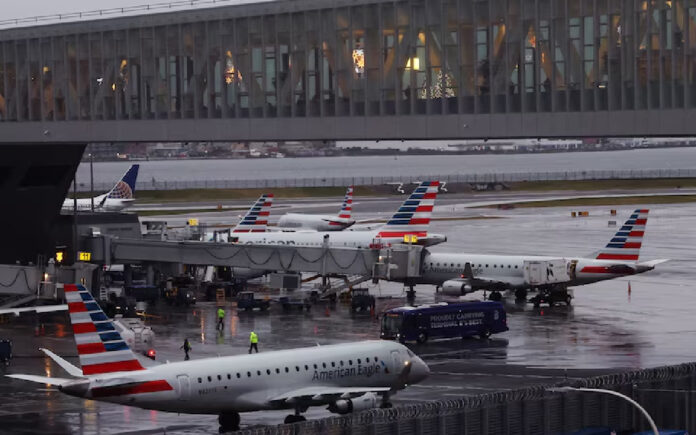Dublin: The global air passenger count is expected to more than double by 2050, driving a surge in fuel demand and undermining the aviation industry’s emission-reduction strategies, according to a study by climate advocacy group Transport and Environment.
This projection comes as aviation industry leaders convene in Dublin for an annual finance conference, where major aircraft sales are anticipated. The Brussels-based group has urged the European Union to introduce measures to curb the aviation sector’s expansion.
“It’s time to come back down to earth and put an end to this addiction to growth,” said Jo Dardenne, aviation director at Transport and Environment, in a statement to Reuters.
Calls for Action
The report outlined potential measures to counter rapid air travel growth, including limiting airport expansions, reducing corporate travel, and imposing higher taxes on the aviation sector.
While the industry accounts for about 2.5% of global carbon emissions, it has pledged to achieve net-zero emissions by 2050 through increased use of sustainable aviation fuel (SAF). However, SAF’s limited availability and its cost—up to five times higher than traditional jet fuel—mean adoption remains minimal.
Fuel Demand and Emissions
Transport and Environment’s report estimates that aviation fuel consumption will rise by 59% by 2050 compared to 2019 levels, driven by a growing number of air travelers. Despite advancements in jet efficiency and the integration of SAF, emissions are set to increase as aircraft manufacturers Airbus and Boeing project substantial growth in air traffic and aircraft production.
“The more they grow, the further away they move from [climate goals]. At this rate, they will still be burning two billion barrels of oil per year in 2050, despite using SAF,” Dardenne stated.
Both Airbus and Boeing declined to comment on the report’s findings when approached by Reuters.
Also Read | Tokyo Museum Offers Nostalgic Glimpse into Defunct Technology
Industry Resistance
The airline industry has consistently resisted calls to curtail its expansion, arguing that aviation is vital for economic growth and global connectivity.
Also Read | Malaysia Imposes Anti-Dumping Duties on Steel Imports from 4 Countries
Transport and Environment’s findings underscore the challenge of aligning aviation growth with global climate goals, raising questions about how the industry can reconcile economic priorities with environmental sustainability.



